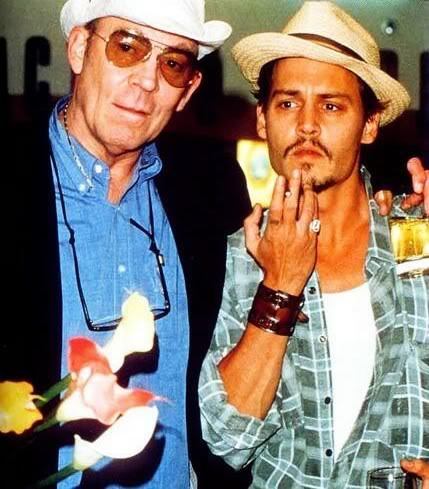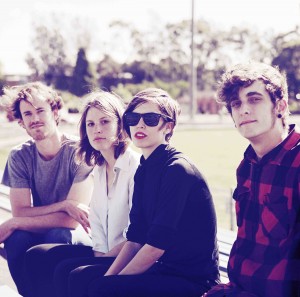BEATY HEART INTERVIEW
Beaty Heart are in
the process of attracting a lot of attention. In their short career they’ve
managed to create media hype, crowd frenzies as well as artistic respect. Their
new EP, released at the end of last month, combines what they’re known best
for; kaleidoscopic visuals (in the form of the official video) and uplifting
percussive rhythms.
Even Rough Trade is
getting a piece of the action, selling their limited edition EP sets; where
your EP finds itself accompanied by a boxful of Beaty Heart Merchandise, all
lovingly hand screen printed and drawn by the boys themselves. Following our
blog piece which unearthed some exclusive pictures of the house party which
gave a kick to their career we thought it only fair to give the South London trio,
or more specifically front man Josh Mitchell, an opportunity to discuss more
current events and thought processes:
You’ve mentioned in
other interviews that you feel a lot more "accomplished" through
releasing your EP on your own Record Label, Worry Free. Is Worry Free a project
that you would like to develop further?
Ideally we would love
to release a bunch more things on Worry Free- our stuff, as well as other music
we like. It costs lots of money to physically put records out, but it’s
something we’re all into exploring sometime in the future!
Do you each have a
fixed role within the band (for example writing lyrics, making visuals etc) or
do you all work together on most things?
There aren’t really
any specific, fixed roles in terms of who does what in the band, musically or
visually etc, and that was one of our aims when we started the band. Having
said that, there are certain things that each of us tends to do. Charlie and
James do all the video art, and the majority of the other art we’ve done, and I
write the lyrics, but it’s not like the roles are definitive.
You’ve recently made
a few changes, moving from a four piece to a three piece and releasing your EP
on Worry Free as opposed to Loose Lips, are there any more changes in the pipe
line?
Hopefully hundreds of
changes! But we don’t know what they are yet...
We’ve managed to
track down some pictures from the ’Musgrove Epic House Party’ at which you
played. Here you handed out the drums to the audience. Do you think that
interaction is a big part of performance? Is it something you would like to
incorporate more or do you think that it’s not really practical?
It’s not really
practical for us to just give drums to the crowd- We don’t have enough, and
people break things and steal stuff. The ’Musgrove Epic House Party’ was a one
off because we knew most of the people we gave drums to. The concept of that
kind of audience interaction in itself is pretty idealistic, and although it’s
definitely possible it requires a lot of consideration. It’s not like you can
just spontaneously interact with the crowd to the extent that you are
performing with them rather than just for them, just because of the
preconceptions people have about what going to a gig means.
South East London
isn’t a Disney film (yet...), where everybody suddenly bursts into harmonious
song and dance. If somebody wants an audience to successfully interact with
them they have to have an established reputation for it, so that the audience
knows what they are in for. Lucky Dragons are a group that experiment with that
very concept and do it really well. People know that when they go to one of
their shows they are probably going to get given some kind of DIY, sound-making
trinket by one of the members of the band, which affects the music.
They usually set up
in the middle of the floor, rather than on stage, and it’s really weird when
the audience all clamour around the band in a kind of passive aggressive
stampede, to get right to the middle of the circle, leaving the artists in the
middle with about a square meter or so in which to perform! I’m not explaining
it well at all but its really, really sick. Here’s a video:
(You can see us in
it!)
You seem to be very
much concerned with the fusion of art and music, with your psychedelic visuals
and abstract cover art, as well as the Ron Arad/ Eyes on the wall collaboration
at The Roundhouse. Would you agree?
Yeah, for sure! We
like the idea that everything we release is a complete aesthetic whole (sounds
really pretentious) with visuals that respond to the artwork and the sound of
the music, etc. ‘The Slush Puppy’ EP’s cover art is also in the video. Same
with 2 Good. That kind of thing...
You are consistently
compared to Animal Collective. Do you see this as an insult to your originality
or do you think it’s a compliment to be weighed against such a well-respected,
well-liked band?
It’s difficult to
feel insulted when somebody compares your music to other artists that you think
are awesome. It’s obvious from listening to our music that they have influenced
it on a number of levels, and none of us mind it when people bring it up in
relation to our music because we totally get it. At times though, it seems like
some people use it as a way to undermine what we do, focusing on the comparison
with Animal Collective alone, rather than writing anything constructive or
insightful... That just seems kind of pointless to me.
Now you are no longer
students do you feel like there is more pressure to make Beaty Heart
successful?
In a way yeah. It’s
not like we need to make lots of money, but having to work pretty much full
time at a really shitty job just so you can support yourself playing in a band
kind of justifies the idea that you’re taking it seriously!
You’ve recently been
touring with The Rapture, if you could tour with any band (alive or dead) who
would it be?
Right now I feel like
I’d want to tour around Jamaica with Sly & The Revolutionaries
Charlie drove from
London to Mongolia, filming in an Ice Cream van. Was this something that
everybody was involved in or do you each have your own individual projects as
well as Beaty Heart?
The Mongolia trip was
all Charlie, and he managed to have a really sweet time and produce something
really awesome from it too- his film ‘10000 Miles From a Car Window’.
Individually we all do different things musically and artistically, but not
really any official ’projects’ at the moment. Everything we do gets channelled
into Beaty Heart because we don’t really have enough spare time to focus on
anything else!
Your music is often
described as experimental. Are you experimenting until you find a sound that
you want to stick with or do you think that experimentation is a key element of
your music?
I don’t really feel
that our music is something particularly experimental. It depends how you
define experimental... I wouldn’t want people to think that we see ourselves as
being really groundbreaking or anything! All we want to do is write music that
we can enjoy listening to. Being ’experimental’ is maybe going somewhere out of
your own comfort zone. I feel like we’re pretty comfy with our delay pedals and
stuff. We are obviously trying to make music that sounds different, but we
write songs, and it’s still essentially pop music. We’re not doing anything
that’s really far out!
Have you got anything
exciting coming up soon?
We’re headlining the
Vice Tour later this month, in Nottingham, Brighton and Bristol! Check the
MySpace for the dates!
Do you have any
personal recommendations for new music out at the moment?
(The band recommends
this video)
Slush Puppy is out
now via Worry Free Records
Words By Morgan
Meaker
















